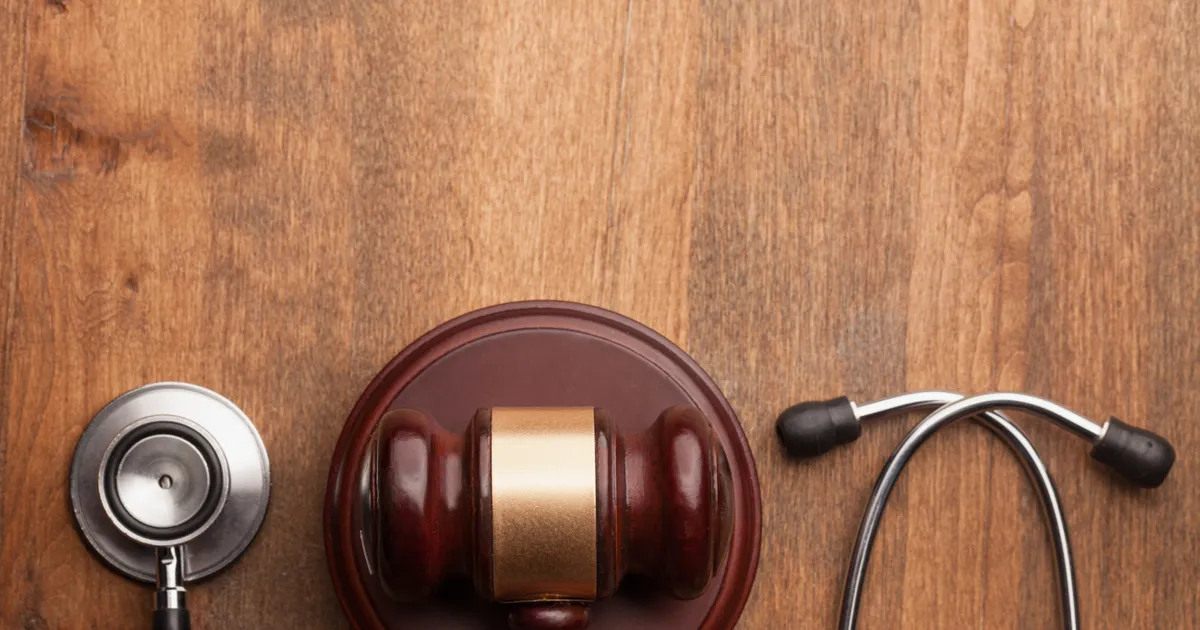When it comes to medical care, accuracy in diagnosis, especially in life-threatening conditions like cancer, is everything. Yet, many are startled to discover the higher-than-expected frequency of cancer misdiagnosis. The consequences of such errors are profound, affecting patients both emotionally and physically, and plunging families into financial turmoil. Thankfully, numerous law firms specialize in defending the rights of those wronged by these medical mistakes. With an online search, you can learn more about the steps you need to take in the event of a cancer misdiagnosis.
 Shutterstock: Billion Photos
Shutterstock: Billion PhotosUnderstanding the Basics of a Cancer Misdiagnosis
A misdiagnosis in cancer can manifest in several ways. Some patients might be wrongfully diagnosed with cancer when in fact they are cancer-free. In other instances, the type of cancer might be identified incorrectly, leading to potentially harmful treatments. Yet another scenario involves doctors overlooking cancer symptoms, leading to delayed detection and treatment.
However, to differentiate between an honest mistake and a lawsuit-worthy error is vital. While doctors have vast knowledge and expertise, they are not immune to human error. For a legal case to be viable, the misdiagnosis must be rooted in negligence and not merely a consequence of the disease’s intricacies or an unintentional slip.
Criteria for a Cancer Misdiagnosis Lawsuit
More specifically, there are criteria for a cancer misdiagnosis lawsuit.1 To understand if you or a loved one has the right to compensation, consider the following list:
1. Established Doctor-Patient Relationship
First and foremost, it is essential to demonstrate a clear doctor-patient relationship. This refers to a mutual agreement where a patient seeks medical advice or treatment and the physician commits to providing care. Absent this established relationship, attributing a duty of care to the doctor becomes difficult.
2. Negligence on the Part of the Doctor
Negligence is a loaded term in medical malpractice. It implies that the physician deviated from the accepted medical standard of care that another competent doctor would have adhered to in a similar situation. It’s not just about an error; it’s about an error that most other professionals wouldn’t have made under the same circumstances.
3. Direct Harm Caused by the Misdiagnosis
A cornerstone of a successful lawsuit is to prove causation. This means you must establish a direct link between the misdiagnosis and subsequent harm. Harm could be:
- Physical suffering due to inappropriate treatments or the repercussions of a delayed diagnosis.
- Emotional turmoil from undergoing needless treatments or facing a grimmer prognosis due to late detection.
- Financial burdens resulting from superfluous medical procedures or treatments and potential loss of income.
4. Quantifiable Damages
The presence of tangible damages is crucial. These damages can be monetary, such as unwarranted medical expenses, lost wages, or non-monetary, like pain, suffering, and loss of life’s pleasures. The key is that they can be clearly attributed to the misdiagnosis.
Steps to Take After a Suspected Misdiagnosis
Navigating a misdiagnosis can be daunting, but there is an established process.2 Here’s a roadmap:
- Seek a second opinion: Before considering legal avenues, obtain a diagnosis from another medical expert. This step not only solidifies your claim but also ensures you receive the correct treatment.
- Document everything: Thorough and detailed records can be the backbone of your case. Catalog every medical visit, test, treatment, and conversation pertinent to the diagnosis.
- Contact a specialized attorney: Medical malpractice is intricate. Teaming up with an experienced attorney can drastically improve your chances of a favorable outcome.
- Act promptly: Legal processes are time-sensitive. Adhere to the stipulated statutes of limitations to safeguard your right to seek justice.
The Psychological Impact of Misdiagnosis
One of the less frequently discussed, yet profoundly significant, consequences of cancer misdiagnosis is its psychological impact. Patients who are wrongly diagnosed with cancer undergo extreme mental and emotional stress. They may make life-altering decisions based on this information, from major surgeries to career changes and even reevaluating life priorities.
On the flip side, those whose diagnosis was missed or delayed may experience feelings of betrayal and heightened anxiety, fearing the worst about their prognosis.3 Moreover, the trust between the patient and the healthcare system can be irreparably damaged. This mistrust may lead to hesitation in seeking future medical care or following prescribed treatments.
Find Help Today!
The ordeal of a cancer misdiagnosis, with its troubling list of associated physical and emotional implications, cannot be overstated. If you or a loved one find yourself ensnared in such a predicament, it’s empowering to discern your legal rights and the avenues available to you.
While this guide provides a foundational understanding, delving deeper and consulting experts is pivotal. Embark on a thorough online exploration and remain proactive in seeking justice and safeguarding your well-being.